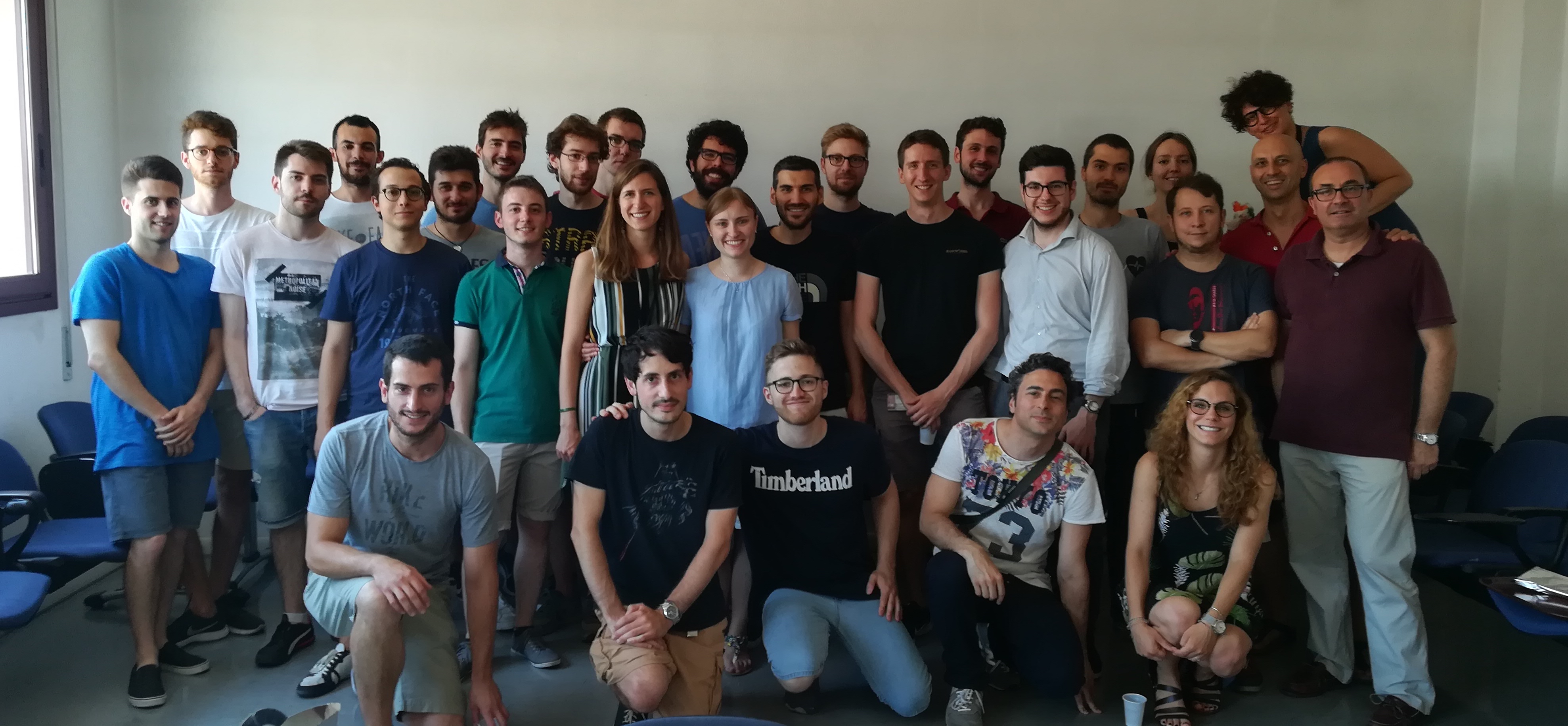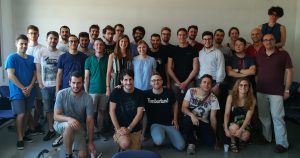
The SIGNET research team is mainly active on the SIGNal processing and NETworking research challenges, with a solid track record in the area of wireless networking at large, with emphasis on protocol design and performance evaluation for Energy Efficiency, Internet-of-Things, Wireless Sensor Networks, Mobile Networks, Underwater Communications, Wearable Devices and others.
Team
SIGNET is home to several faculty members and many talented young researchers, see our people page.
Research Facilities
The research facilities of the lab include the following large-scale testbeds:
- WiSeWAI: a large-scale Wireless Sensor Network for city-Wide Ambient Intelligence, with more than 300 nodes, which has been in operation for several years.
- CARMEN: a Cognitive AndRoid MEsh Network testbed, featuring fixed and wireless devices (smartphones and tablets) running the Android OS, with some dedicated software modules for data collection, protocols monitoring, and cognitive cross-layer optimization of devices and protocols.
- NAUTILUS: a testbed for underwater communication via acoustic links, consisting of several acoustic modems, used for protocol design and experimentation activities related to underwater networks.
Research Projects
The SIGNET group has participated in many international research projects, including the first European project on energy efficiency in sensor networks (EYES, FP5), the flagship IoT-A FP7 project on Internet of Things architectures, the ongoing H2020 projects SCAVENGE and Windmill, and the recently granted H2020 MINTS project. Over the years, the group has been collaborating with major companies in the ICT domain such as SAMSUNG (SAIT Global Research Outreach), INTEL (ISRA program), and HUAWEI, among others.
Department of Information Engineering
The SIGNET lab is within the Department of Information Engineering (DEI), which counts more than 90 faculty members and approximately 4,000 undergraduate and postgraduate students, and more than 90 PhD students and post-doctoral fellows doing research in Information Engineering, including the areas of Electronics, System Theory and Automation, Telecommunications, Computer Engineering, Bioengineering, Measurement Techniques, Physics and Operation Research applied to Information Engineering.

